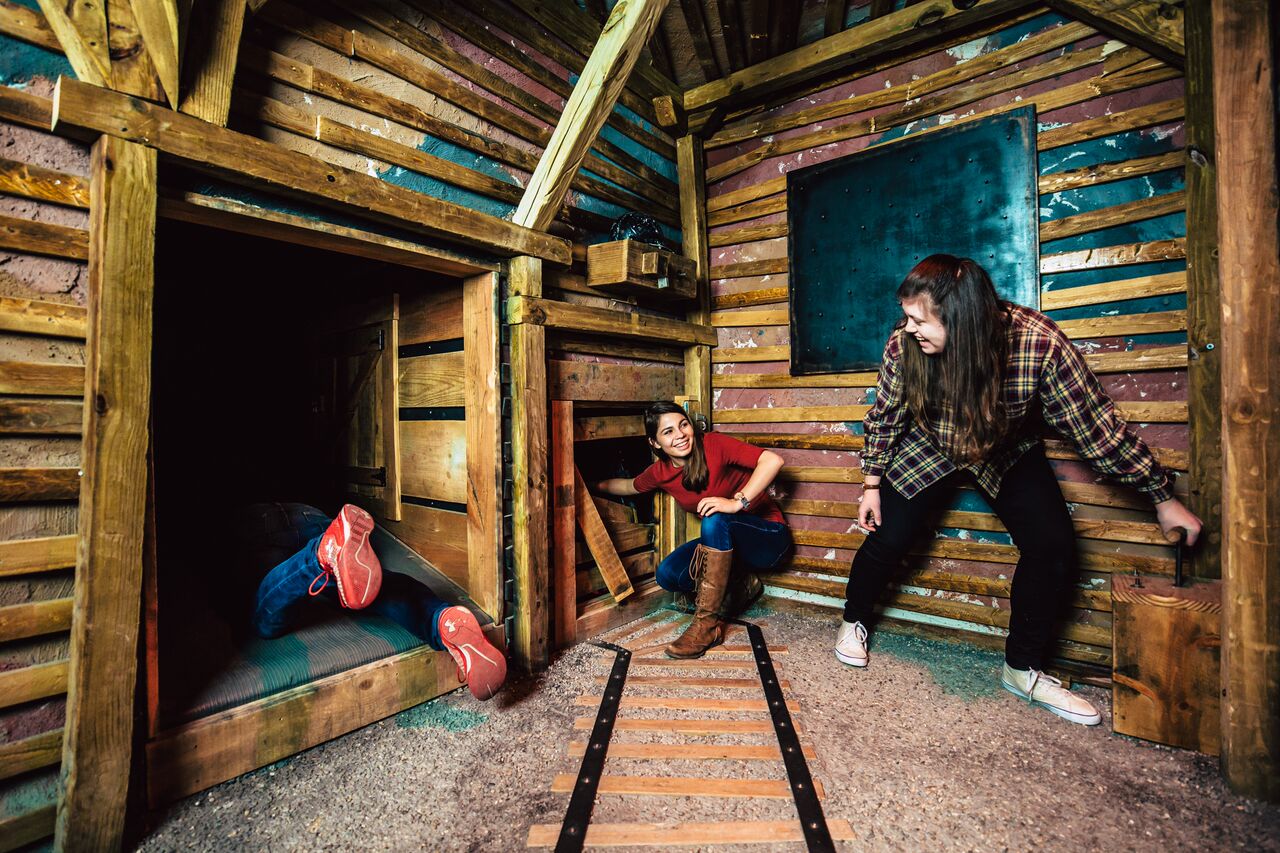Minneapolis Escape Room-- Amazing Problem Challenges for All Ages
Minneapolis Escape Room-- Amazing Problem Challenges for All Ages
Blog Article
Group Approaches: Just How to Team up Efficiently in a Getaway Area
Groups must proactively listen to each member's insights, appoint functions that align with private toughness, and preserve regular check-ins to make certain emphasis and stop redundancy. By fostering an environment that values cohesion and versatility, teams can considerably increase their efficiency and success rates.
Establish Clear Interaction

To facilitate clear communication, it is important to mark a central point of contact for details dissemination. This duty involves summing up findings and recommended approaches to ensure every person remains on the same page. Additionally, taking on an organized technique to conversations can avoid chaotic exchanges. Short, concentrated updates from each group participant can keep the team informed without frustrating them with details - best escape room.

Appoint Duties Tactically
While clear communication establishes the foundation for efficient synergy, designating roles tactically makes sure that each employee's staminas are made use of effectively. In a getaway room circumstance, the time-sensitive and complex nature of obstacles requires an efficient technique to job delegation. By identifying and leveraging private competencies, teams can maximize their analytic capabilities and boost overall performance.
First, examine the unique abilities and features of each individual. A person with a keen eye for information may succeed in finding hidden items, while a sensible thinker might be much better suited to fixing puzzles. It's similarly important to have a leader who can supervise progress, handle the timeline, and make crucial telephone calls when needed. This function usually requires strong business and interpersonal skills.
2nd, ensure that duties are flexible and adaptable. As new obstacles arise, the group must have the ability to pivot, reallocating tasks as required. This adaptability aids preserve momentum and avoids bottlenecks that might happen because of stiff function projects.
Inevitably, a strategic approach to duty project not only maximizes the strengths of each employee but additionally cultivates a natural environment, driving the group in the direction of a successful getaway.
Utilize Diverse Abilities
Recognizing and using the varied skills within your team can considerably elevate your efficiency in an escape space. Each team participant brings unique toughness to the table, and effectively leveraging these capacities can quicken analytical and improve general performance. For instance, a staff member with strong analytical abilities might excel at deciphering complicated codes or patterns, while another with eager empirical abilities may promptly identify hidden hints that may ignore.
Urge group members to articulate their insights and concepts without delay, guaranteeing that all prospective options are taken into consideration. Additionally, assigning jobs that straighten with each member's staminas can protect against bottlenecks and make sure that development is constant.
Additionally, diversity in skills commonly converts to variety in assuming designs, which is very useful in a retreat area setup. While some obstacles might call find out this here for sensible thinking and accuracy, others may take advantage of imaginative and side reasoning. By identifying and leveraging this variety, groups can address a broader variety of difficulties better, consequently enhancing their opportunities of a successful retreat.
Manage Time Successfully

First, allot first mins for a fast study of the space. Recognize noticeable problems and split jobs based on employee' toughness, ensuring that nobody is still. Set internal time checkpoints to evaluate progress occasionally; as an example, aim to have half the problems fixed by the mid-point of the game. This practice can aid maintain the team focused and stop time from escaping undetected.
In addition, prevent passage vision. If a puzzle is taking also long, turn employee or go on to one more challenge, returning later on with fresh viewpoints. Communication is vital-- keep every person updated on solved puzzles and remaining jobs to avoid repetitive efforts.
Last but not least, make use of any type of tips or hints moderately however strategically - best escape room. Recognizing when to request aid can save important time. By sticking to these time management concepts, teams can significantly improve their possibilities of an effective and pleasurable retreat area experience
Debrief and Mirror
Reflection is a crucial facet of group development and enhancement in the context of retreat rooms. When the difficulty is finished, whether efficiently or not, it is crucial for the team to engage in a structured debriefing session. This process permits group members to analyze their performance, determine toughness, and pinpoint locations for enhancement.
Start the debrief by reviewing what worked out. Highlight particular instances of reliable communication, problem-solving, and partnership. Acknowledging these favorable habits enhances them and urges their repetition in future challenges.
Go over minutes of complication, miscommunication, or inefficient methods. Urge an open and constructive dialogue where team participants can share their viewpoints without concern of look at more info criticism.
Conclusion
To conclude, successful Continued collaboration in a retreat room is predicated upon clear interaction, critical duty projects, the efficient utilization of varied abilities, and proficient time administration. Routine check-ins and organized debriefings are necessary for keeping focus and cultivating continual enhancement. By creating a cohesive and adaptive group atmosphere, the possibility of efficiently resolving problems and accomplishing the objective of escaping the area is substantially improved. This approach not just guarantees success but additionally advertises collective development and discovering.
Report this page